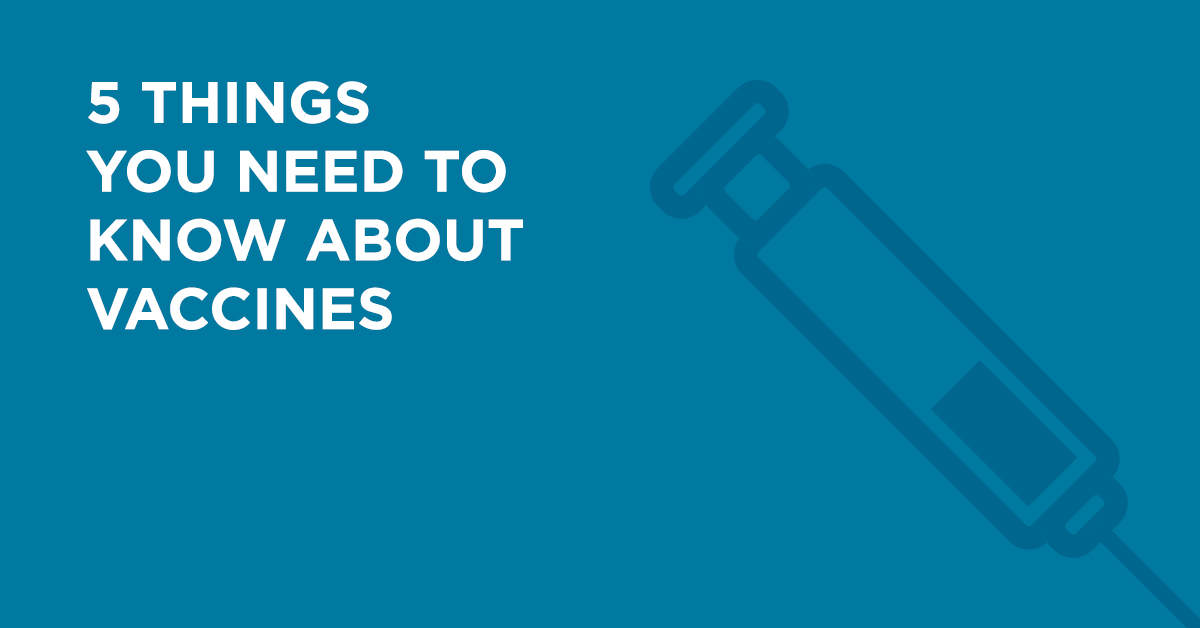
We know that plenty of people have questions about the safety and necessity of vaccines, so we’re here to set the record straight.
Why now? August is National Immunization Awareness Month, and it’s the perfect time to get informed so you can ensure your friends and family understand the vital impact that immunizations have on our community.
So if you or your loved ones have questions about why vaccines are important, just consider these five things.
Vaccines Help Eliminate Deadly Diseases
From polio and diphtheria to the mumps and measles, the number of deadly diseases vaccines have helped to eradicate is staggering. Just consider smallpox. The disease that once affected millions of people every year claimed its last life in 1978 and is now eradicated in the most meaningful sense.
Vaccines Protect You
We’re firm believers that people should be proactive about their health and wellness, and vaccines are an ideal (and affordable) way to do that.
Whether you’re protecting yourself against the yearly influenza virus or getting your shots before heading overseas, immunizations protect you from all sorts of debilitating diseases that are easier to prevent than they are to treat.
Vaccines Protect Others
Immunizations do more than just protect you, however. The entire community benefits when you get vaccinated according to the proper schedule and your doctor’s recommendations. Those who cannot receive immunizations due to age or medical reasons benefit when others are vaccinated because it minimizes risks for transmission among those whom we share space with.
The U.S. Has the Safest Vaccine Supply in History
By closely closely monitoring and extensively testing all vaccines, the Centers for Disease Control and Prevention (CDC) has ensured that the United States has access to the safest, most effective vaccine supply in the world.
“There has been some misinformation surrounding vaccines,” said Joseph Moser, MD, Chief Medical Officer at UM CRMC. “For instance, you cannot get the flu from a flu vaccine. Almost all vaccines today use fragments of the virus or bacterium and cannot cause the condition they are protecting against.”
“A variable percentage of people do not develop enough antibodies from the vaccine to totally protect them but their symptoms may be reduced,” he added. “So some people who receive the flu vaccine may still develop the flu later.”
Regarding childhood immunizations, Dr. Moser said there remains a widespread myth that vaccines can cause autism. “The one article that promoted this notion years ago (1998 in Lancet, later retracted by the publisher) has been thoroughly discredited and multiple studies have shown no link.”
Vaccines Save Everyone Money
Immunizations continue to save our community money by helping kids and adults alike avoid costly medical intervention or hospitalization. In fact, an analysis conducted by the CDC in 2014 estimated that vaccinations administered to children from 1994-2013 will save nearly $295 billion in direct costs and $1.38 trillion in total societal costs.
Want to learn more about vaccinations or National Immunization Awareness Month? Visit our Online Health Library or the official CDC website today.

